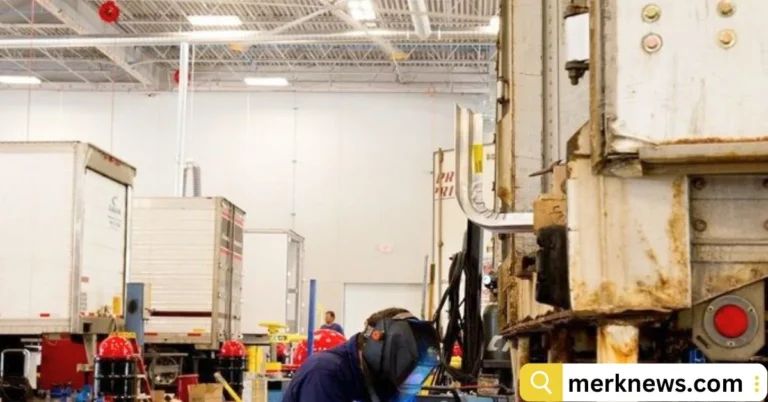Table of Contents
- The Importance of Regular Trailer Maintenance
- Signs of Wear and Tear to Look Out For
- Common Trailer Repairs
- DIY vs. Professional Repairs
- Safety Tips When Working on Your Trailer
- Recommended Tools for Trailer Maintenance
- Preventive Measures to Extend Your Trailer’s Life
- Finding a Trusted Repair Shop
The Importance of Regular Trailer Maintenance
Regular maintenance is crucial to ensure your trailer remains safe and functional. Not only does it prevent costly repairs, but it also extends the lifespan of your trailer. Consistent check-ups help identify potential issues early, ensuring smooth and safe travels. Preventive measures pay off by keeping your trailer roadworthy and dependable over time. Neglecting regular maintenance can lead to unexpected breakdowns, pose significant safety risks, and increase the financial burden of emergency repairs.
Signs of Wear and Tear to Look Out For
Spotting signs of wear and tear early can save you from major headaches down the road. For instance, maintaining your trailer by regularly visiting a trailer repair shop can reveal problems before they get out of hand. Look for rust, cracks, worn tires, and any unusual noises during your inspections. Keep an eye out for electrical problems such as failing lights and signals. Routine inspections should also include checking the trailer’s flooring for soft spots, as water damage can lead to expensive repairs. For more details on trailer maintenance tips, check out resources from expert websites. Identifying these signs early on allows you to address them promptly, minimizing the risk of more severe and costly damage.
Common Trailer Repairs
Some of the most common trailer repairs include fixing brakes, suspensions, and axles. These components are essential for the safe operation of your trailer and should be maintained regularly. Regularly check the condition of your trailer’s hitch and wiring to ensure they are in good working order. Address rust problems promptly to prevent the spread and potential structural damage. Brake and suspension repairs often require specialized tools and knowledge, so consulting with a professional mechanic may be necessary. Routine maintenance on bearings and seals can also prevent early trailer repair and premature wear and ensure optimal performance.
DIY vs. Professional Repairs
While some repairs can be managed with essential tools and skills, others require professional attention. They know the difference between what you can handle and what needs expert intervention. For instance, most trailer owners can typically change a tire or fix minor wiring issues. However, more complex repairs, such as axle replacements or significant structural work, should be left to professionals. For more insights on whether to tackle repairs yourself or hire a pro, consult authoritative guides like those from Popular Mechanics. Professional mechanics have the expertise and equipment to handle intricate maintenance, ensuring safety and trailer longevity.
Safety Tips When Working on Your Trailer
Safety should always be a top priority when working on your trailer. Use proper lifting techniques to avoid injuries and securely support the trailer before starting work. Always wear protective gear such as gloves, safety glasses, and steel-toed boots. Ensure your workspace is well-lit and hazards-free, and keep a first-aid kit nearby in emergencies. If you’re using power tools, ensure they are in good working condition and follow the manufacturer’s instructions. Maintaining a clean and organized workspace can significantly reduce the risk of accidents and improve efficiency.
Recommended Tools for Trailer Maintenance
Having the right tools can make all the difference when maintaining your trailer. Some essential tools for trailer maintenance include a hydraulic jack, socket wrenches, pliers, and a tire pressure gauge. A suitable brake controller is crucial for safe towing, and a multimeter can help diagnose electrical issues. Additionally, investing in a torque wrench is essential for adequately tightening lug nuts and bolts, preventing them from coming loose during travel. Keeping a toolbox with these essential items will make it easier to perform routine maintenance and handle any unexpected issues that may arise.
Preventive Measures to Extend Your Trailer’s Life
Preventive measures like regular washing, proper storage, and routine lubrication can significantly extend your trailer’s life. Washing your trailer removes dirt, grime, and salt that can cause rust and corrosion. Proper storage, such as keeping your trailer in a covered area or using a trailer cover, protects it from the elements and reduces wear and tear. Routine lubrication of moving parts, such as hinges and axles, ensures smooth operation and prevents premature wear. Implementing a maintenance schedule and sticking to it ensures that minor issues don’t escalate and helps keep your trailer in top condition year-round.
Finding a Trusted Repair Shop
When professional repairs are needed, finding a trusted repair shop is essential. Look for shops with good reviews and experienced technicians. Personal recommendations and online reviews can guide you to reputable service providers. It’s also important to inquire about the shop’s certification and warranty policies, as these can indicate the quality of their work. Building a relationship with a reliable repair shop can provide peace of mind, knowing that your trailer is in capable hands. Don’t hesitate to ask questions and seek second opinions to ensure you receive the best service possible.
Read more: Imacion: The Science Behind Creative Genius
